Outsourcing has failed the NSW Child Protection system.
The NSW Community Services system is in crisis. There are simply too many children in need and not enough staff to care for them. Add in a failed attempt to offload on non-government organisations (NGOs) and you have a disaster.
Out Of Home Care (OOHC) has been outsourced to NGOs by successive Labor and Coalition governments over the past 20 years, resulting in the quality of services plummeting and the costs to run them spiraling out of control. There are no winners: children are in crisis and the taxpayer is paying a premium for a substandard service.
 Whereas once the Department of Community Services was responsible for caring for children in need, this service now places some cases into the care of a variety of NGOs throughout the state.
Whereas once the Department of Community Services was responsible for caring for children in need, this service now places some cases into the care of a variety of NGOs throughout the state.
In NSW, about 500 children are cared for under “Alternative Care Arrangements” in facilities such as serviced apartments at enormous cost. In the past, children were housed in motel rooms and caravans. Children are supervised round the clock by labour hire workers, who are sometimes inexperienced.
These children make up about 2 to 3 per cent of kids in care, yet the Government paid private providers a billion dollars over the past two years to care for them.
PSA General Secretary Stewart Little said it is vital the OOHC system is returned to Government control, as the “providers are just not up to the job”.
“This should be a key part of the government’s role,” he said. “Governments need to protect their most vulnerable citizens.
“A lot of these large NGOs are using a subcontract model. You end up with a situation where babies are looked after by labour-hire staff often lacking appropriate experience.
“Some Alternative Care Arrangements cost up to $3 million for one child in need.”
Private providers are able to pick and choose cases, often refusing to accept responsibility for the most troubled children. There is also, thanks to the way the system is set up, little financial incentive for the private providers to find foster homes for children. The NGO gets paid, no matter what the result.
“Under the outsourcing arrangements, there is no contractual compulsion to take the most troubled cases,” said Mr Little. “Yet some of these providers which are refusing to take on high-needs children have vacancies. They don’t want to spend resources on these kids. It is up to the new government to unpick these arrangements and end this situation.”
 The Department’s Caseworkers say they are being pressured by management to put pressure on extended family members to take on children in need, particularly high-needs cases, regardless of whether this is a suitable match.
The Department’s Caseworkers say they are being pressured by management to put pressure on extended family members to take on children in need, particularly high-needs cases, regardless of whether this is a suitable match.
“One of our concerns is kids in high-needs placements with no-one in their extended family who can care for them,” said one member. “What instead happens is this puts pressure back on Caseworkers to find the placement to cut costs.
“You are required to contact the family to take on the children. I’m happy to talk to the family members, of course, but management is telling me to use phrases such as ‘they are your family’ to force them into taking on kids. Pressuring family members who have expressed a reluctance to take on this role is not how you get quality care for children.
“Getting family involved is obviously a good idea. Forcing family to get involved is not.
“This also increases our massive workload. It doesn’t make sense.
“Newer workers find talking to people about family members in need can be a really distressing task.
“In some cases, the children are reluctant to leave the residential situation they are in and the friends they have made in school to move in with a relative they have possibly never met in a town they know nothing about.
“Better planning would help address this. It needs to be less of a knee-jerk reaction to a dire situation.”
High-needs children have extremely complex requirements, and simply handing them over to the nearest available relative may make things worse.
“A lot of families can’t be found,” said one member. “In other cases, with high-needs children, they are simply unsuited or incapable of taking them in.”
“A lot of Caseworkers are talking about the few placement options for kids with medium-level and high-level needs,” said another member.
“They end up in residential services cobbled together with no notice. Better preparation is required. They know there will be a certain number of children coming up with these needs every year.
“We need, in place now, appropriate services such as intensive foster care and residential care ready to accept these cases. The Department needs to be proactive, not reactive.
“These cases have challenging behaviour issues that mainstream foster carers struggle to cope with.
“The Department has known about these issues a long time. We are hearing about uplift teams looking into the cases: they should just ask us, the frontline Caseworkers. We don’t need another six-month review to delay everything. We need placement for these medium- and high-needs kids.
“When in doubt, bureaucrats review. We believe in taking action.”
Recently the PSA’s Community Services Departmental Committee continued its long campaign on this issue, demanding more be done when meeting with the Minister for Community Services, Kate Washington.
Speaking to the Committee in PSA House, Ms Washington said the system was showing signs of 10 years of neglect under the Liberal-National Coalition and was “a ship that takes a long time to turn around”.
“Words are nice, actions are better: we are determined to get things changed,” she said.
She agreed the 2 to 3 per cent of children requiring special accommodation in facilities such as serviced apartments have cost the state half a billion dollars over the past two years.
Ms Washington has since made statements to the media stating her government has listened to the PSA CPSU NSW’s concerns and is considering taking Out of Home Care back into total state control. This came after the union gained significant media interest about its members’ plight soon after the Minister’s meeting in PSA House.
“We are glad the Minister is listening to us,” said Mr Little. “The current system is the result of a catastrophic failure of government over a number of years.
“About 15,000 kids are in foster care throughout the state. These are children, they are not responsible for their predicament. It is up to the new government to pick up the pieces of a broken system and take responsibility for these children.
“By bringing OOHC back to government, the Department will be able to provide foster carers with better support.
“Child Protection is just one of these areas where the Government has walked away from its responsibilities to the most vulnerable people in NSW. They have also walked away from aged care and we live in the only state in Australia where there is no government-run safety net for people with disability.
“We are the wealthiest state in one of the world’s wealthiest nations. The current situation cannot stand.”




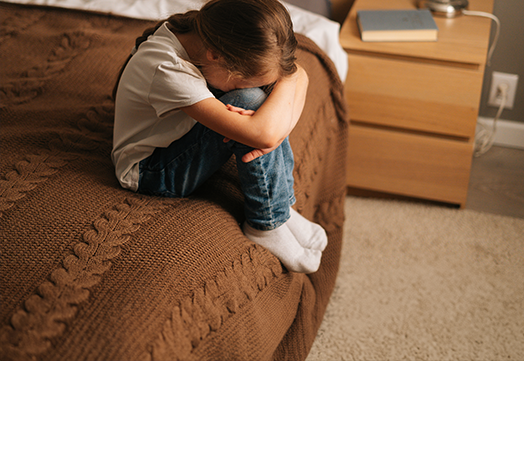









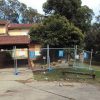

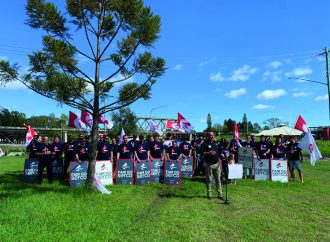
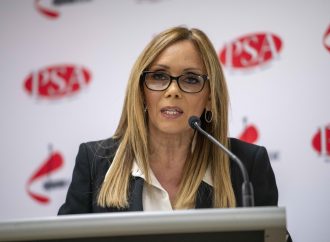
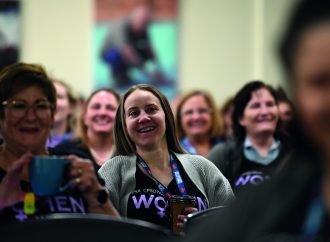

Leave a Comment
Your email address will not be published. Required fields are marked with *